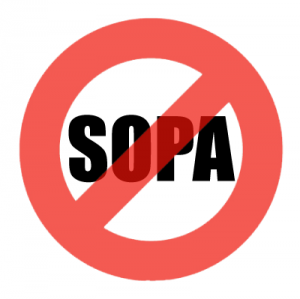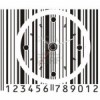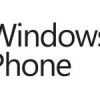(The SOPA { Stop Online Piracy Act }-supporting Motion Picture Association of America has accused Demand Progress of being allied with “offshore rogue Web sites that promote the theft and illegal marketing of American products like movies, video games, and software.”)
It took an Internet-wide outcry from millions of voters to prompt Rep. Lamar Smith, author of the Stop Online Piracy Act, to postpone a vote on the controversial Hollywood-backed bill. The latest campaign is designed to build on last month’s remarkable protests, which included Wikipedia going dark for a day and Google and Amazon.com posting anti-SOPA warnings on their home pages. Irate voters overwhelmed the U.S. Senate’s Web site and, importantly, demonstrated to politicians that Internet users could be a potent political force.

Now Smith, a conservative Texas Republican, is being targeted a second time: for championing legislation that would require Internet service providers to keep track of their customers, in case police want to review those logs in the future. His bill is called H.R. 1981.
“This is yet another government assault on the Internet and its users,” said Demand Progress Executive Director David Segal. “We taught Congress a lesson last month: we need to do to H.R. 1981 what we did to SOPA, and make it clear to Lamar Smith and the rest of Congress that they can’t run roughshod over Internet freedom.”
Demand Progress, a liberal advocacy group and enthusiastic adversary of large copyright holders, claims to have generated more than 86,000 e-mails as of this afternoon to politicians opposing H.R. 1981
ISP snooping time line is like
June 2005: Justice Department officials quietly propose data retention rules.
December 2005: European Parliament votes for data retention of up to two years.
April 2006: Data retention proposals surface in Colorado and the U.S. Congress.
April 2006: Attorney General Gonzales says data retention “must be addressed.”
April 2006: Rep. DeGette proposes data retention amendment.
May 2006: Rep. Sensenbrenner drafts data retention legislation-butbacks away from it two days later.
May 2006: Gonzales and FBI Director Mueller meet with Internet and telecommunications companies.
February 2009: Two data retention bills target ISPs, hotels, coffee shops
February 2009: Copyright holders would benefit from data retention
January 2011: Justice Department calls for mandatory data retention
February 2011: White House undecided on data retention
May 2011: Wireless providers exempted from Rep. Smith’s bill
July 2011: National Sheriffs’ Association endorses data retention
Other Web sites involved in the anti-SOPA protests are now joining the anti-H.R. 1981 chorus. A DailyKos article says Smith “is back with a new antiprivacy bill”; a Reddit thread yesterday calls Smith’s proposal a “crazy snooping bill”;
Just as challengers tried to wield SOPA against incumbents-prompting Rep. Paul Ryan, one of the most influential House Republicans, to denounce it-a challenger to Maine Republican Olympia Snowe is invoking H.R. 1981.
Maine’s Tea Party Patriots state coordinator, Andrew Ian Dodge, now a Senate candidate, said today that: “I hope all our Maine representatives will join me in condemning this attack on our right to privacy.”
Because the Motion Picture Association of America was the most public supporter of SOPA, opponents were able to argue that Hollywood doesn’t understand technology and remind everyone that the late MPAA chief Jack Valenti once likened the humble analog VCR to “the Boston strangler.”
H.R. 1981 represents “a data bank of every digital act by every American” that would “let us find out where every single American visited Web sites,” Rep. Zoe Lofgren of California, who led Democratic opposition to the bill, warned at the time. Rep. F. James Sensenbrenner, a Wisconsin Republican and previous supporter of data retention, changed his mind and now opposes it.
The latest version of H.R. 1981 expands the information that commercial Internet providers would be required to store to include customers’ names, addresses, phone numbers, credit card numbers, bank account numbers, and temporarily-assigned IP addresses, some committee members suggested. Even though H.R. 1981 is titled the “Protecting Children from Internet Pornographers Act,” it would give police the power to review the companies’ user logs for nearly any crime. Even Smith, during a January 2011 hearing, pointed to the problems of “illegal gambling, cigarette and prescription drug distribution, and child exploitation.” Civil litigants, for instance in divorce cases, might also be able to gain access to the logs.
In addition, an existing law called the Protect Our Children Act of 2008 requires any Internet provider who “obtains actual knowledge” of possible child pornography transmissions to “make a report of such facts or circumstances.” Companies that knowingly fail to comply can be fined up to $150,000 for the first offense and up to $300,000 for each subsequent offense.



